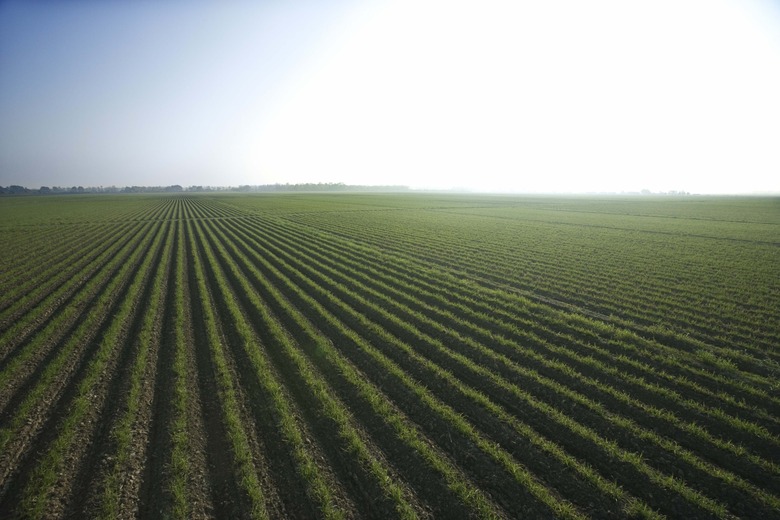Solutions For Soil Pollution
How can we help stop soil pollution? Soil pollution is defined as the presence of toxic chemicals in the soil. Any soil that contains pollutants in quantities that are higher than naturally-occurring levels is considered contaminated. Generally speaking, soil pollution can usually be traced back to industrial activities, agriculture and waste disposal.
There are many man-made (not natural) sources of soil pollution, and pollutants that are released into soil ultimately end up in waterways. In other words, soil pollution leaches into lakes, streams and oceans over time, so soil pollution becomes water pollution too. Fortunately, there are just as many soil contamination solutions as there are sources, so it is possible to both prevent and solve the problem.
Industrial Sources of Pollution
Industrial Sources of Pollution
Industrial activities such as those at oil refineries, chemical factories and nuclear energy plants release toxins into the environment. Mines that extract resources from the earth and factories that produce consumer goods like cars and phones are also sources of soil pollution.
Toxins released into the air from industrial factories also affect the land and water. Gases emitted from industrial activities combine with oxygen and water in the atmosphere to form new chemicals that accumulate in land and water when they are released to the earth with precipitation. Acid rain is an example of this problem, as it is primarily caused by the burning of fossil fuels, and can result in the acidification of bodies of water and the contamination of land.
By choosing sustainable sources of energy for heating our homes and powering our vehicles, we can reduce the amount of soil pollution produced by factories. Buying consumer products from thrift stores and purchasing refurbished electronics also reduces pollution, as this reduces the demand for new goods.
Soil Pollution from Agriculture
Soil Pollution from Agriculture
Agricultural activities like raising livestock and growing crops can also contribute to soil pollution. The tillage required for growing field crops may lead to soil erosion, and the synthetic inputs of pesticides and fertilizers used on conventional farms may lead to the accumulation of toxins in the soils. Spreading large quantities of livestock waste on the land may also cause soil pollution, as excess nutrients may be present in manure.
Pollutants like excess nutrients that are applied to land through agricultural practices eventually end up in our waterways, as they drain slowly through the soil each time it rains. Erosion of soil caused by farming also affects our waters, as the pollutants carried in the silt filter into our waterways. And pollutants in the solid waste in landfills also make their way to our oceans and rivers as leachate drains from these sites.
Using more environmentally-friendly gardening products and less pesticides in your yard helps prevent soil pollution. Eating less meat, growing your own food and purchasing local and organic fruits and vegetables can also help reduce the amount of land pollution produced by large-scale agriculture.
Pollution from Waste Disposal
Pollution from Waste Disposal
The disposal of waste – both refuse sent to the landfill and litter that is carelessly discarded – can also cause soil pollution. Manufactured items that contain toxins like electronics, paints and home cleaning chemicals can leach into the ground as they slowly decompose. When rainwater falls on landfills and littered areas, it accumulates contaminants as it filters through the waste products. Heavy metals like mercury, lead, arsenic, copper and zinc are some of the toxins that have been found to accumulate in the soil below landfills.
The "Three R's" – reduce, reuse and recycle – can all help keep our waste disposal to a minimum. Choosing to purchase biodegradable products and items with less packaging also helps keep toxins out of our landfills. When materials must be discarded, sending them to sites that have been properly designed helps limit soil pollution.
Cite This Article
MLA
Sloane, Christina. "Solutions For Soil Pollution" sciencing.com, https://www.sciencing.com/solutions-for-soil-pollution-13406884/. 30 September 2021.
APA
Sloane, Christina. (2021, September 30). Solutions For Soil Pollution. sciencing.com. Retrieved from https://www.sciencing.com/solutions-for-soil-pollution-13406884/
Chicago
Sloane, Christina. Solutions For Soil Pollution last modified August 30, 2022. https://www.sciencing.com/solutions-for-soil-pollution-13406884/
